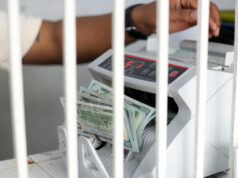Suspension of fuel excise hike still on, but doubts creep in
THE GOVERNMENT will continue with its plan to suspend the scheduled increase in the fuel excise tax in 2019, the Department of Finance (DoF) said, although volatility in the oil futures market is strengthening the hand of officials who want the tax increase to go ahead.
Tax reform legislation permits the suspension of the fuel excise tax hike if Dubai crude, the price benchmark for Asia, averages $80 per barrel or higher for three months.
The benchmark was exceeded starting late September, prompting the government to call for the suspension of the increase even before the three-month trigger period, an indication that it was under pressure to act on rising inflation. Since the suspension was first proposed, futures contracts for Dubai, crude, the benchmark for Asia, have occasionally dipped below the $80 level.
The DoF presented data on Wednesday showing the Dubai futures contracts for November and December delivery falling below $80 per barrel, an indicator of possible price trends for the commodity. The spot price was above $80 at mid-October.
Socioeconomic Planning Secretary Ernesto M. Pernia said on Thursday that in light of the price movements, economic managers are now looking to review the decision to suspend the fuel tax hike.
“Maybe it’s better if we don’t suspend it. We really have to study it seriously first,” he told reporters in a chance interview on Thursday in Manila when asked whether the government will rethink its decision.
“We’ll talk about it,” he said.
Finance Assistant Secretary Antonio G. Lambino II said on Thursday that the decision still stands, although Malacañang has yet to announce the suspension formally.
“The recommendation to suspend stands. We are anticipating a formal announcement from OP (Office of the President). The review will happen at some point next year after the suspension is implemented,” he said in a mobile phone message
Republic Act No. 10963, or the Tax Reform for Acceleration and Inclusion Act (TRAIN), which took effect in January, raised fuel excise taxes by P2.50 per liter this year and is scheduled to add P2/liter and P1.50/liter in 2019 and 2020, respectively, totaling P6/liter. — Elijah Joseph C. Tubayan



